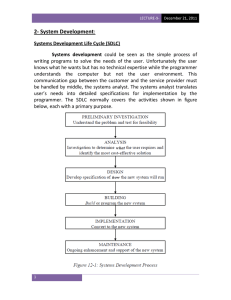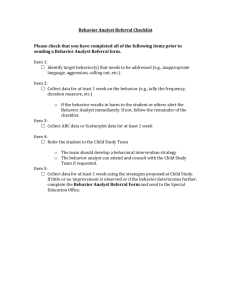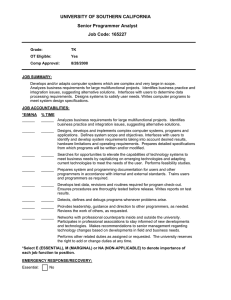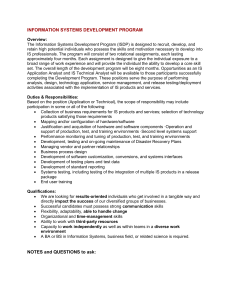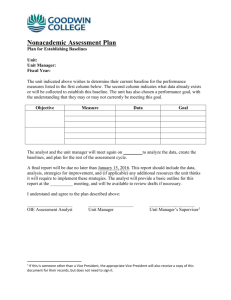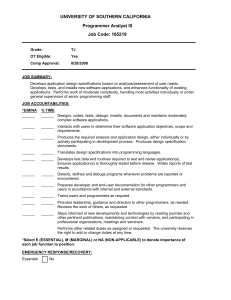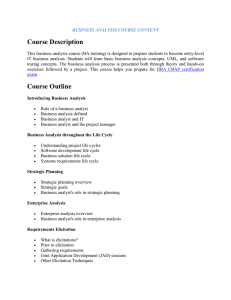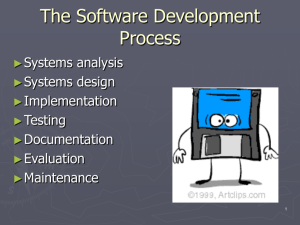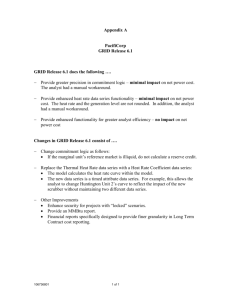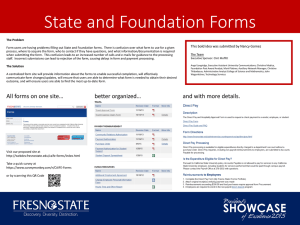Higher Computing
advertisement
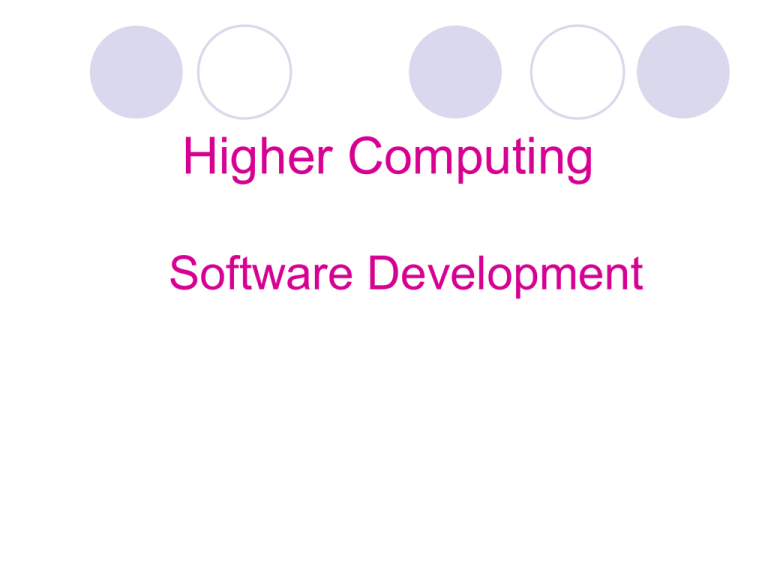
Higher Computing Software Development Software Development Process There are 7 main stages involved in developing a new software program: Analysis Design Implementation Testing Documentation Evaluation Maintenance Software Development Process A Donkey In Texas Does Exercises Magnificently An Iterative Process The whole Software Development Process is described as an Iterative process. This is because each stage may be revisited or repeated until it is correct. In this way the final solution is continually being refined. An example of this would be where an error is found during the Testing stage resulting in the Implementation or even the Design stage being repeated. Personnel Involved in the SDP Client – or the customer requests the software and describes the scope and boundaries of the problem to the Systems Analyst. Systems Analyst – agrees with the client the detailed specification of the software to be produced and documents these findings as the Software Specification. Project Manager – is responsible for the overall project by liaising between the Client, the Analyst, the Programmers and the Testers and makes sure deadlines are met. Programmers – are responsible, usually as part of a team, for converting the program design into a working solution in program code. Independent Test Group – carries out testing of the program produced by the programmers. They may also be involved in testing the final program when it is installed for the client. Analysis This stage involves the Analyst extracting from the Client exactly what the program has to do. This process is known as Requirements Elicitation. The Analyst may interview the Client, observe how the current business system works, make observation notes and inspect all relevant paperwork. The result of the Analysis stage is a document known as the Software Specification. It is a legally binding document.

